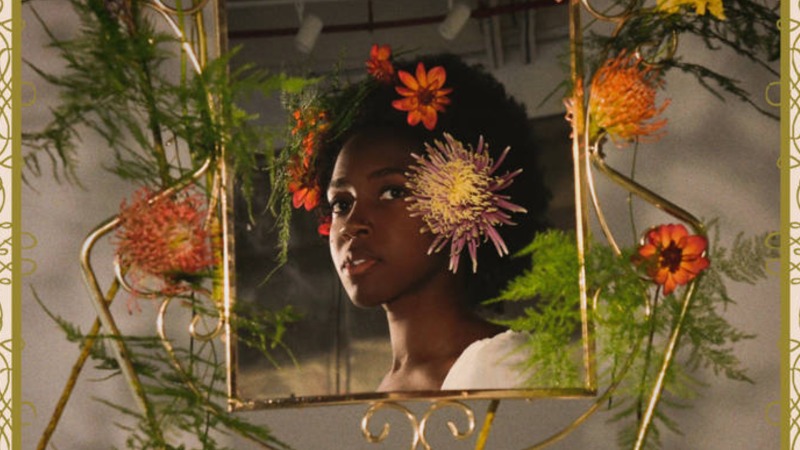Uwade Blossoms Brilliantly on Florilegium
The Nigerian-born, North Carolina-raised singer-songwriter’s debut album seamlessly blends a plethora of musical styles while paying homage to her roots.

The term “Florilegium” has many meanings. In literature, it means a collection or anthology of short literary pieces, such as poems or ballads. In Latin, it translates to a gathering of flowers. However, for Uwade, the word felt like the perfect summation of her own meadow of stories amassed over five years of loss, growth, and exploration. While arranging her bouquet of life, she selected flowers from every phase of her existence, from her father’s death to emotional crises over feeling like a failure. Each petal is colored by her experience, blooming as she reveals her innermost feelings and desires.
The Nigerian-born and North Carolina-raised singer-songwriter and musician’s star began rising when Fleet Foxes discovered her singing a cover of their song “Mykonos” on Instagram. After listening to her soulful rendition, they enlisted her to sing on their Grammy-nominated record, Shore. Following her collaboration with the well-known indie folk band, she hit the road opening for artists such as Jamila Woods, Sylvan Esso, and the Strokes. With a handful of singles under her belt, Uwade has crafted her debut album, Florilegium, a genre-bending array of enthralling vocals, vehement lyricism, and a colorful cornucopia of instrumentation.
The album opens with “The Place in the Sky,” a dedication to Uwade’s father, who passed away in 2020. Her vocals carefully waltz alongside soft percussive accompaniment and hymnal harmonies as she sings, “Don’t tell me no / I want to go to the place in the sky / I’ll find my way if not today, so no one ask me why / I’m going home to all I’ve known, I wish that I could stay / But when the spirit beckons you what more is there to say?” It’s a heartbreaking opener riddled with grief but packed with sonic beauty. Uwade’s ethereal, layered harmonizing almost feels like a conversation with herself as she works through her feelings around her dad’s passing. Kindred stories of anguish appear in “Clearer Through You” and “Lost in Translation,” where she digs into understanding a version of herself without her father and a contemplation of her identity as a young adult.
-

-

-

-

-

-

-

-

-

-

-

-

-

-

-

-

-

-

-

-

-

-

-

-

-

-

-

-

-

-

-

-

-

-

-

-

-

-

-

-








































